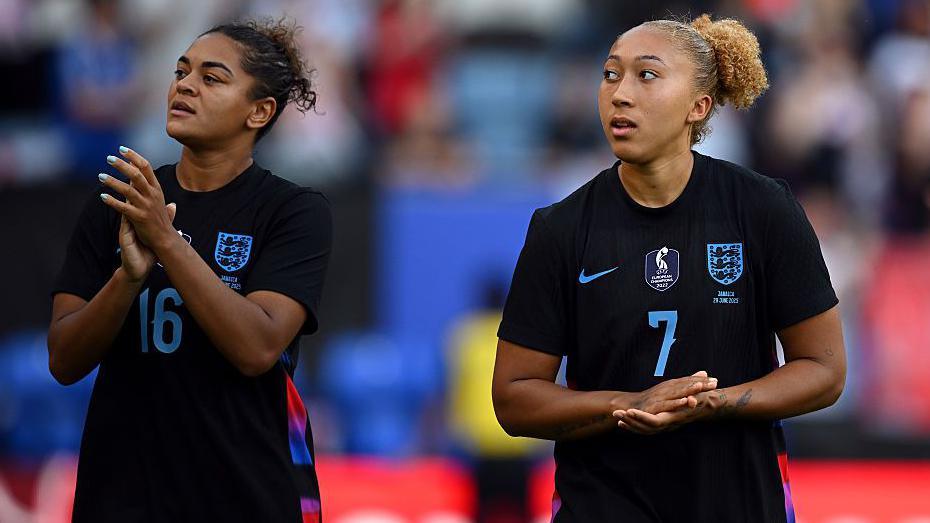The article discusses the fears expressed by Jess Carter, a key player for the England women’s national football team, regarding the potential racist backlash her teammate Lauren James could face following a penalty miss during the Euro 2025 quarter-final against Sweden. Carter conveyed her distress by stating that the abuse James might experience would have been “astronomical,” particularly if she had been the only England player not to score in a significant penalty shootout. This commentary sheds light on the broader issue of racial abuse directed towards athletes, particularly those from minority backgrounds within competitive sports.
Carter’s concerns were grounded in previous instances of racial abuse that James had received, specifically highlighting two occasions—once in 2021 while playing for Manchester United and again in 2023 when she transitioned to Chelsea. Such historical context amplifies the urgency of Carter’s remarks, as it reveals a disturbing pattern of online racism that athletes, particularly women of color, face. The Football Association (FA) has initiated efforts in response to this troubling trend by collaborating with law enforcement agencies to combat such online abuse, showcasing a willingness to address the issue head-on.
The context of the Euro 2025 match is crucial here, as it highlights a tense moment for the England team. During the shootout, James missed her penalty, yet it was noteworthy that other teammates—including Beth Mead, Alex Greenwood, and Grace Clinton, all of whom are white—also failed to convert their penalties. Despite these additional misses, England was ultimately able to move past Sweden and continue their journey to the finals, where they ultimately triumphed against Spain in another dramatic penalty scenario.
Carter’s candid reflection on the situation reveals the psychological burden that such racial prejudice places on players. She articulated a sense of relief when her white teammates also missed, indicating a grim awareness of the racial dynamics in play. She remarked, “It’s not because we want them to fail; it’s about knowing how it’s going to be for us [black England players] if we miss.” This highlights the overt and hidden pressures that minority athletes navigate in high-stakes competitions.
The physical and mental toll of being subjected to racial abuse is not to be underestimated. Carter conveyed how such incidents made her feel “really small” and stripped her sense of importance and value. This emotional impact detracts from players’ confidence and may even deter them from performing at optimal levels. It affects their mental well-being and can lead to significant distress, complicating the psychological aspects of participating in sports.
As the tournament progressed, the FA took a stand regarding the abuse directed at players like Carter and James. FA chief executive Mark Bullingham reiterated the organization’s commitment to addressing the abhorrent nature of such behavior by referring abuse cases to UK police, indicating a serious approach to accountability. Meanwhile, Carter took a step back from social media, acknowledging the negative influence of online interactions, though she also emphasized the overwhelming support received from fans as a positive counterbalance.
In a broader context, the England team has decided to discontinue the practice of taking the knee before matches, a decision supported by their manager Sarina Wiegman, who expressed concerns over the effectiveness of this anti-racism gesture. This switch underlines a growing discourse on the long-lasting impacts of expressing solidarity through gestures and the need for sustained, meaningful actions against racism in sports.
Ultimately, Carter’s admission of fear surrounding her selection for the finals encapsulates the complex emotions athletes endure amid public scrutiny and the potential for abuse. She shared, “I was scared of whatever abuse might come with it… whether it’s football-based or whether it was going to be the racial abuse that was going to come with it because I did something wrong,” illustrating a tragic reality beneath the competitive surface of professional sports. The discourse surrounding racial issues in sports is vital to understanding the challenges athletes face, emphasizing the need for systemic change and greater support mechanisms for those impacted.











